Baseball’s first all-professional team, the Cincinnati Red Stockings, combine to hit 169 home runs in the club’s 57 official games. Shortstop George Wright led the team with 49.
The Long Ball: Reds Home Run Timeline
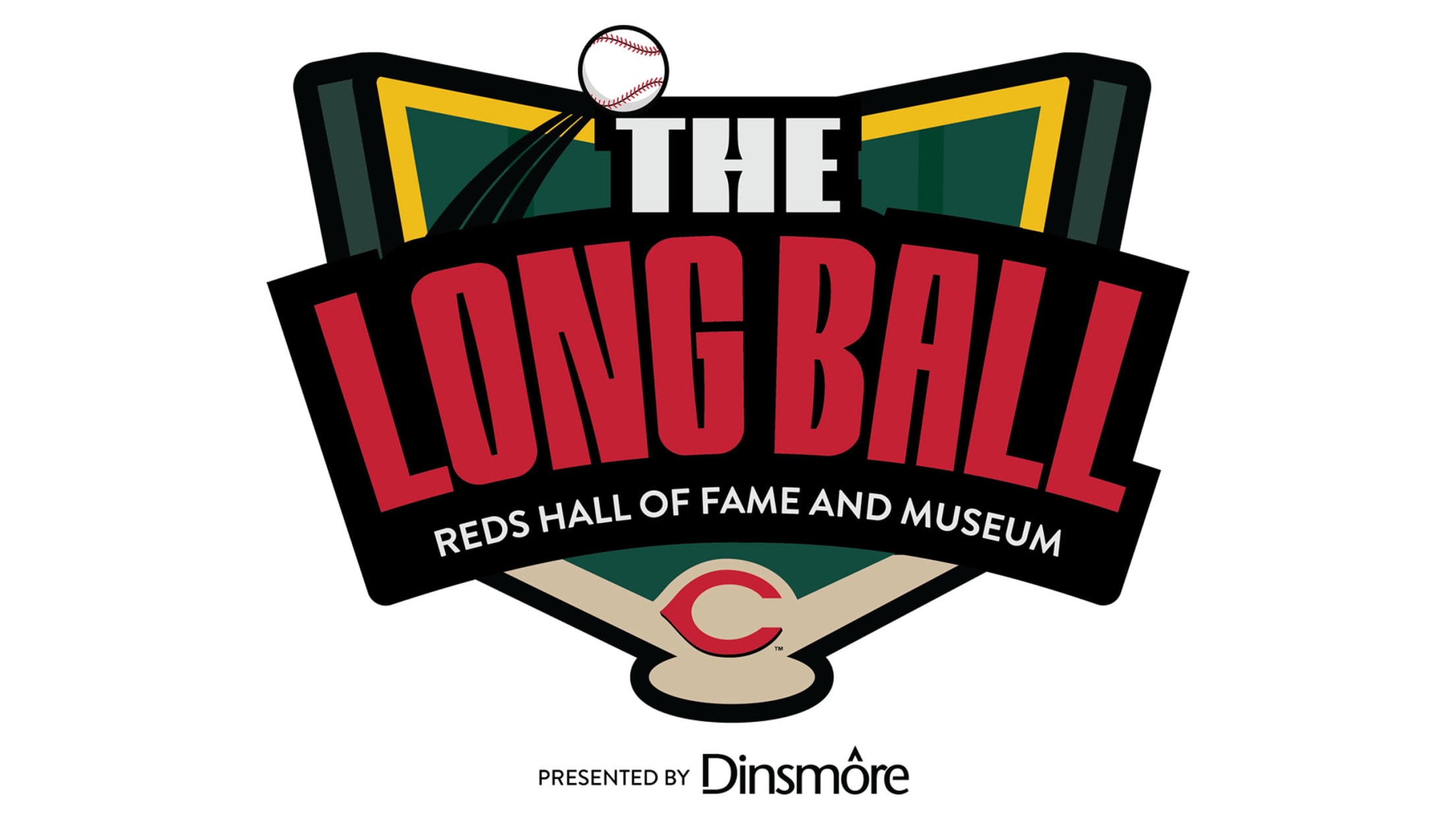
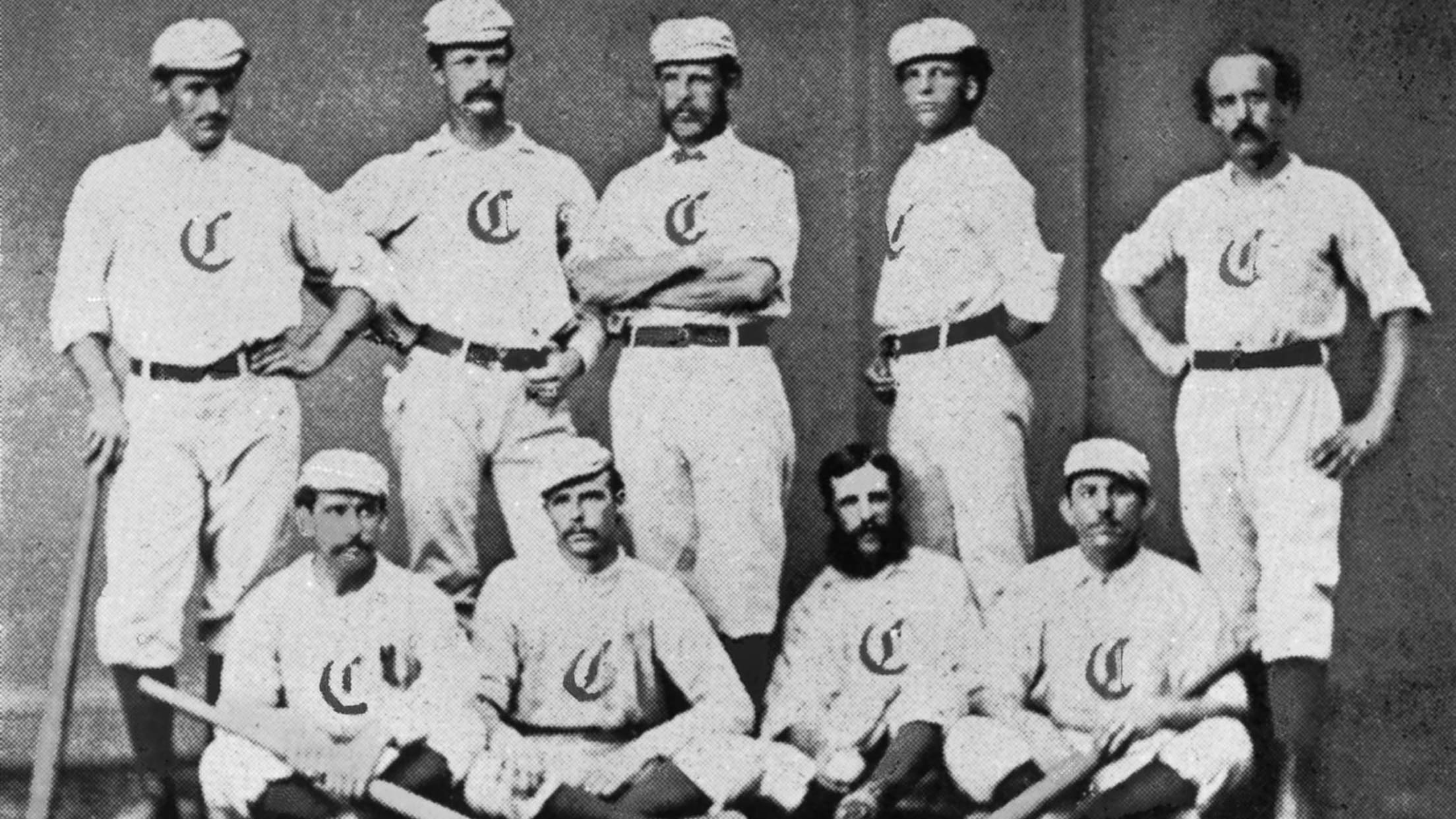
Charley Jones hits the first home run for the first Reds franchise to play in the National League.
Outfielder Lip Pike hits four homers to become the first player playing for a Reds team to lead a league in home runs. The homer that came on September 6 is believed to be the first over-the-fence home run hit by a player in a Reds uniform.
Cincinnati catcher John Clapp’s inside-the-park homer is the first home run hit on Opening Day in Cincinnati..
On May 19, third baseman Hick Carpenter hits the first home run in the statistical history of the current Reds franchise. Carpenter’s homer was one of five hit by the American Association champion Reds that season.
The Reds combine for a league-best 34 home runs, the first time a Reds team leads a league in home runs.
The Reds combine for a league-best 34 home runs, the first time a Reds team leads a league in home runs.
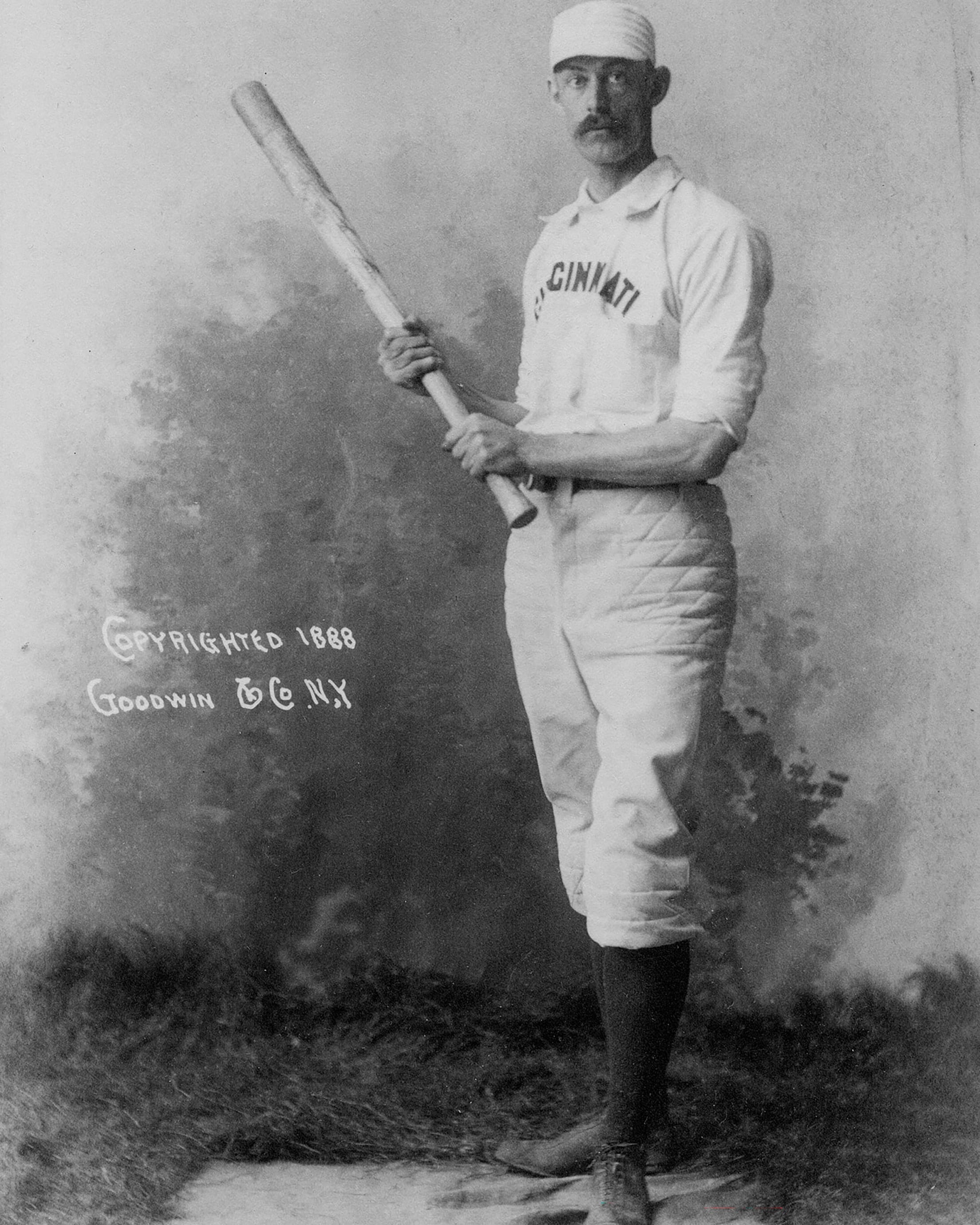
First baseman “Long John” Reilly hits eleven home runs and is the first player in franchise history to top the league in homers. The year before, Reilly had become the first Reds player to hit for the cycle.
On Opening Day, Reds outfielder George Tebeau becomes the first player in franchise history to hit a home run in his first major league at-bat.
Outfielder Bug Holliday establishes a new single-season franchise home run record with 19.
On Opening Day, Bug Holliday hits the first home run for the Reds since the team’s move from the American Association to the National League.
The first Red to lead the National League in home runs, outfielder Bug Holliday’s 13 homers tops the circuit.
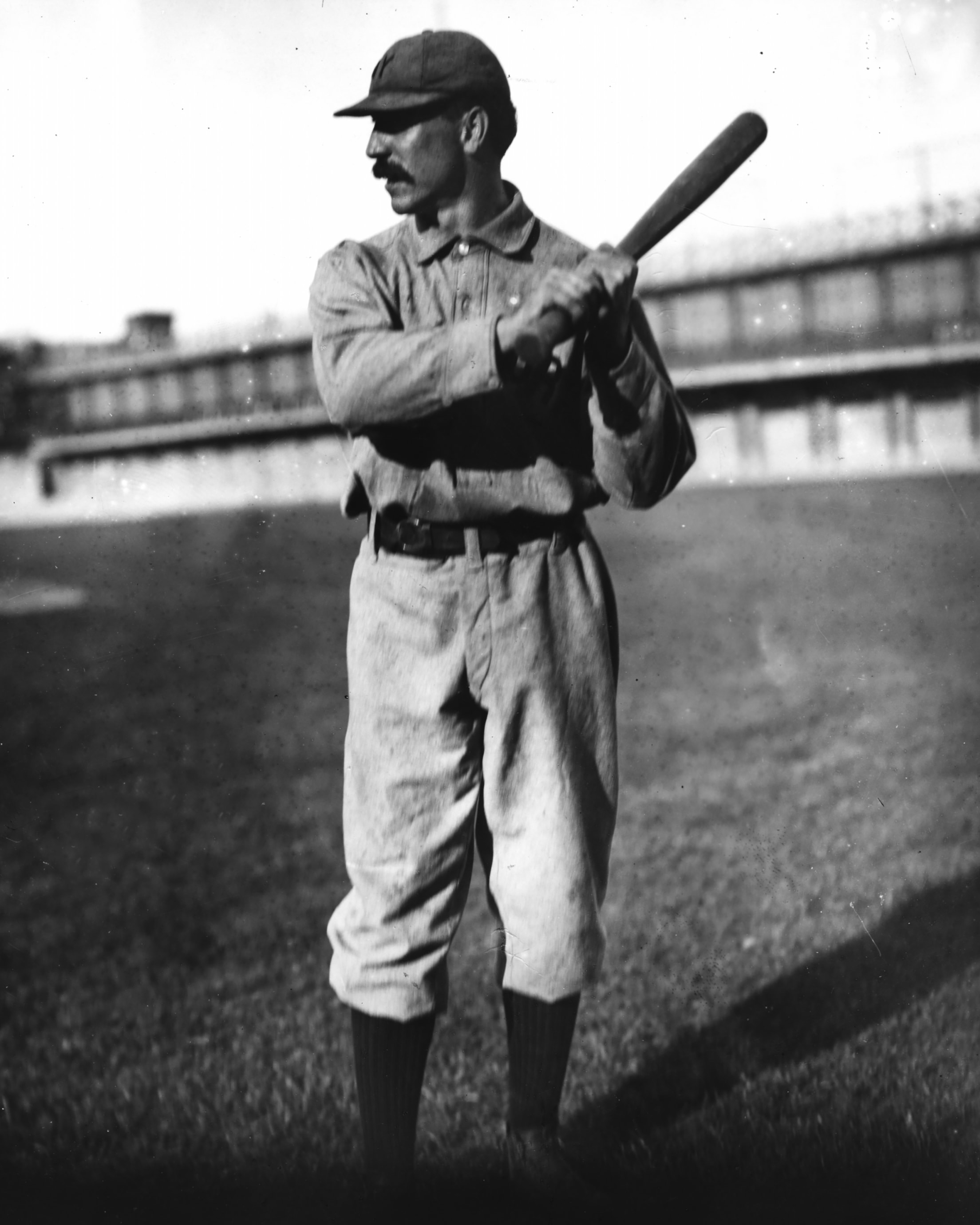
First baseman Jake Beckley becomes the first Red to hit three home runs in a game.
The Palace of the Fans opens and, on April 25, second baseman Erve Beck hits the first home run by a Red at the new ballpark.
Outfielder Johnny Bates hits the last home run by a Red at the Palace of the Fans.
Shortstop Jimmy Esmond hits the first home run by a Red at newly-opened Redland/Crosley Field.
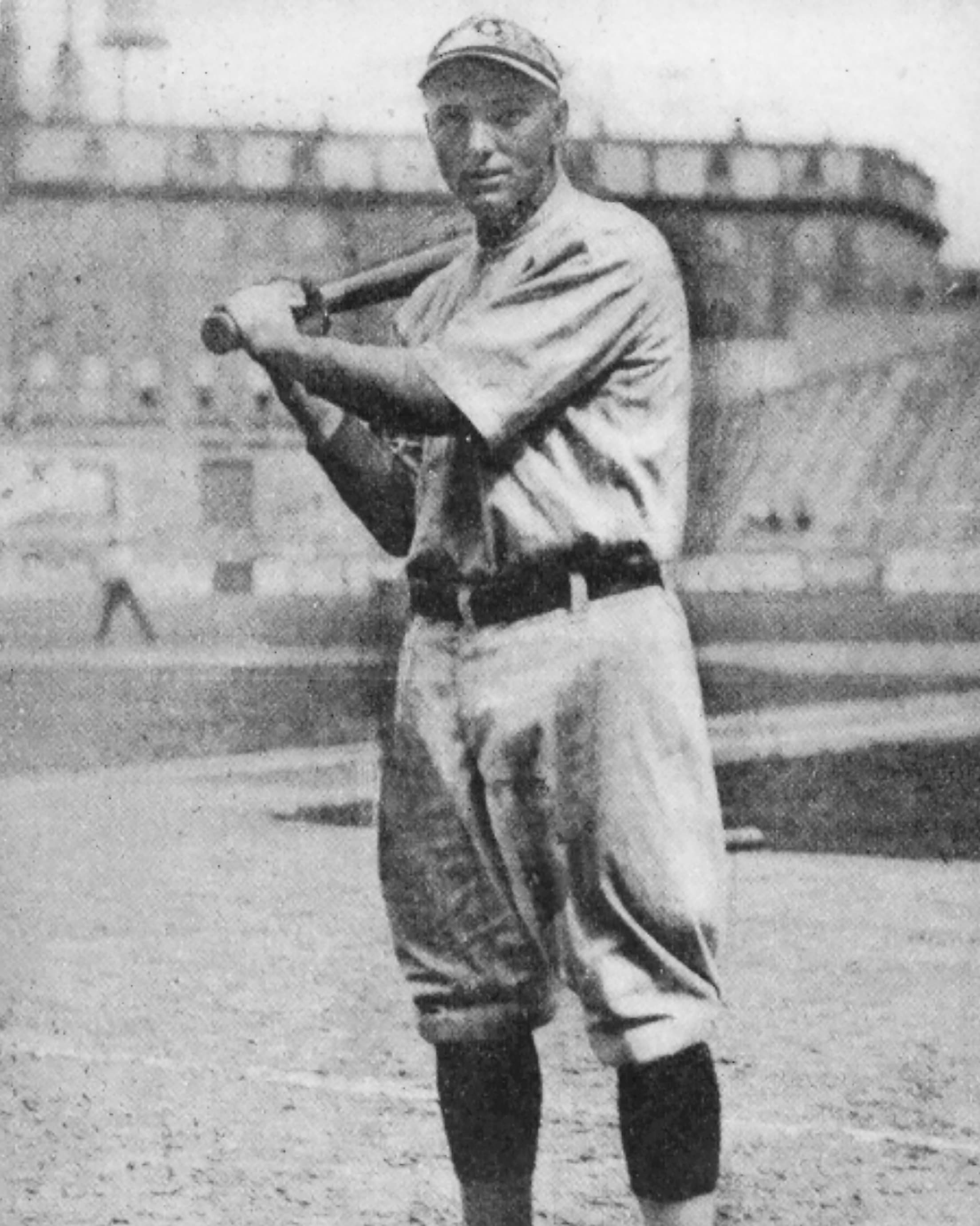
In Redland/Crosley Field’s tenth season, outfielder Pat Duncan hits the first over-the fence home run at the ballpark.
Outfielder Harry Heilmann ties Bug Holliday’s 1889 franchise record for home runs in a season with 19.
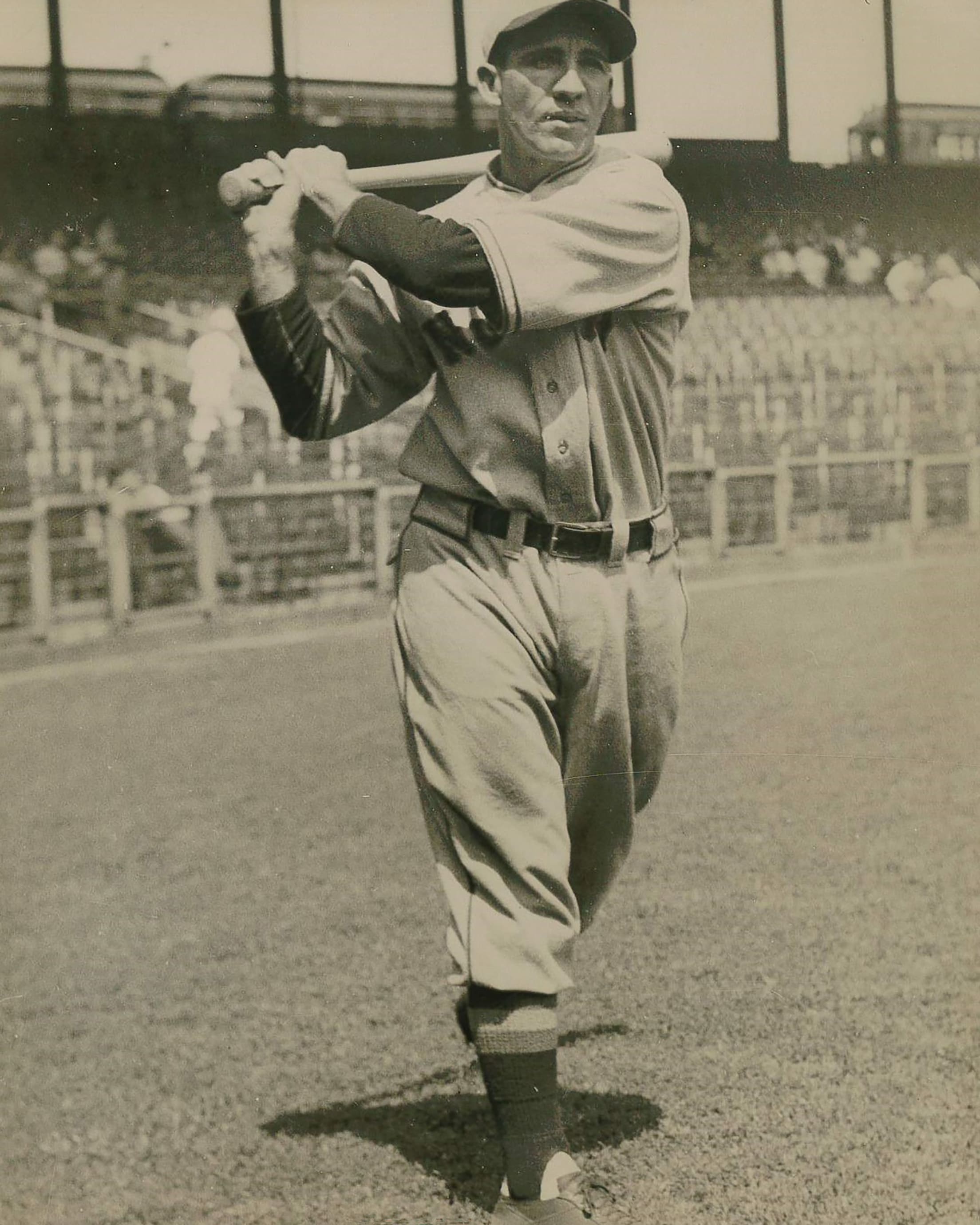
The Reds hit 110 home runs as a team, marking the first time the club had reached the century mark in home runs. Outfielder Ival Goodman finishes the season with 30 homers, making him the first Reds player to reach both the 20 and 30 home run plateaus in a single season.
On August 11, catcher Ernie Lombardi breaks “Long John” Reilly’s franchise career home run record when he hits his 70th homer as a Red. Reilly’s record had stood since 1884.
In the third inning of Game 2 of the World Series, outfielder Jimmy Ripple becomes the first Red to hit a postseason home run.
In the eighth inning of World Series Game 6, Bucky Walters becomes the first Reds pitcher to hit a postseason home run.
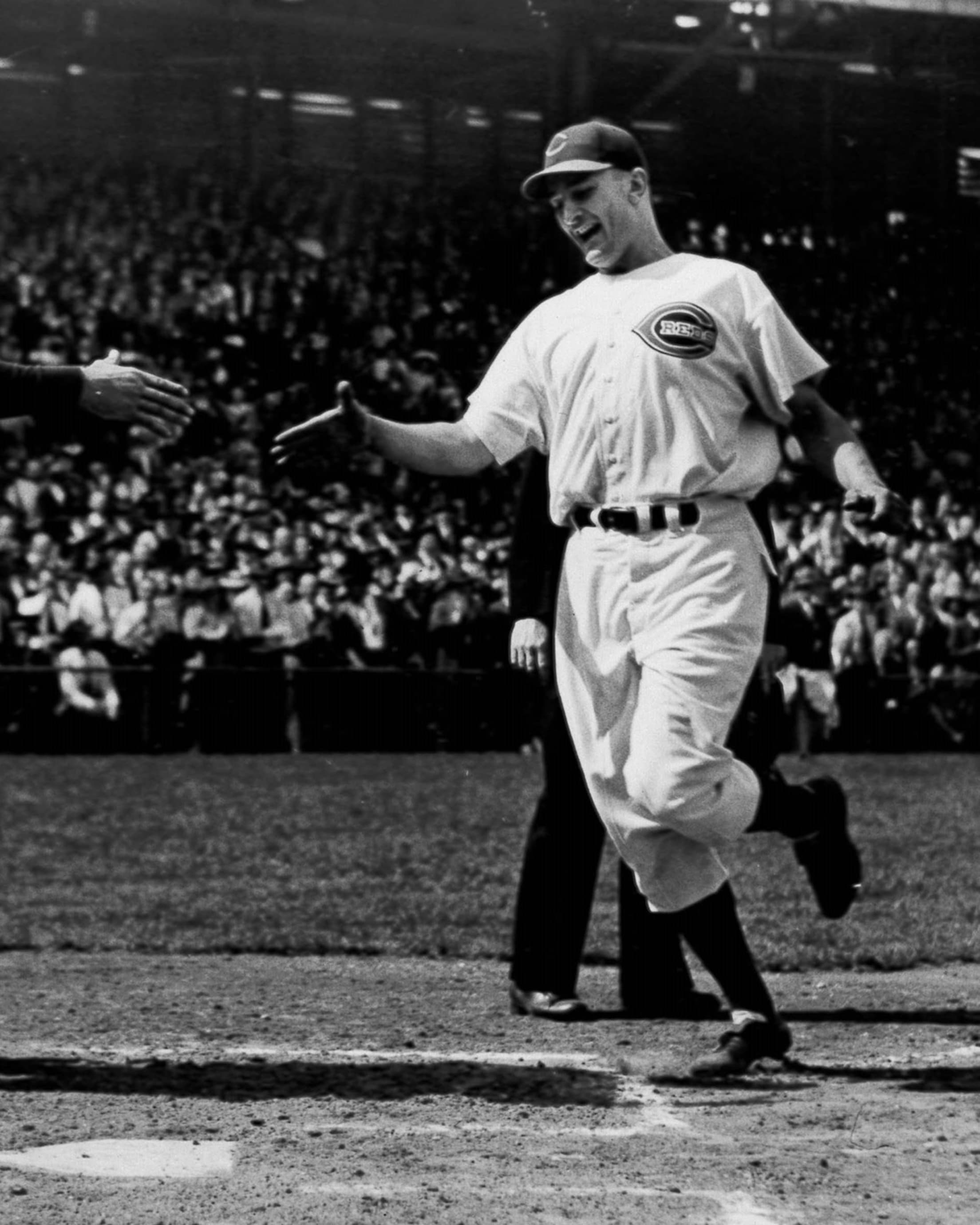
First baseman Frank McCormick’s two-home run day is the first multi-homer Opening Day game for a Red.
Outfielder and Cincinnati native Clyde Vollmer becomes the first Red since 1887 to hit a home run in his first major league plate appearance. Vollmer hit the first pitch he saw for a solo homer in the third inning of the Reds’ 3-0 victory over the Pirates at Crosley Field.
Outfielder Hank Sauer sets a new single season franchise home run record with 35.
First baseman Ted Kluszewski sets a new single season franchise record when he hits his 36th home run. “Big Klu” finishes the year with 40 homers.
Ted Kluszewski belts career home run #121 to break Ernie Lombardi’s franchise career home run record.
Ted Kluszewski is the first Red to homer in an All-Star Game.
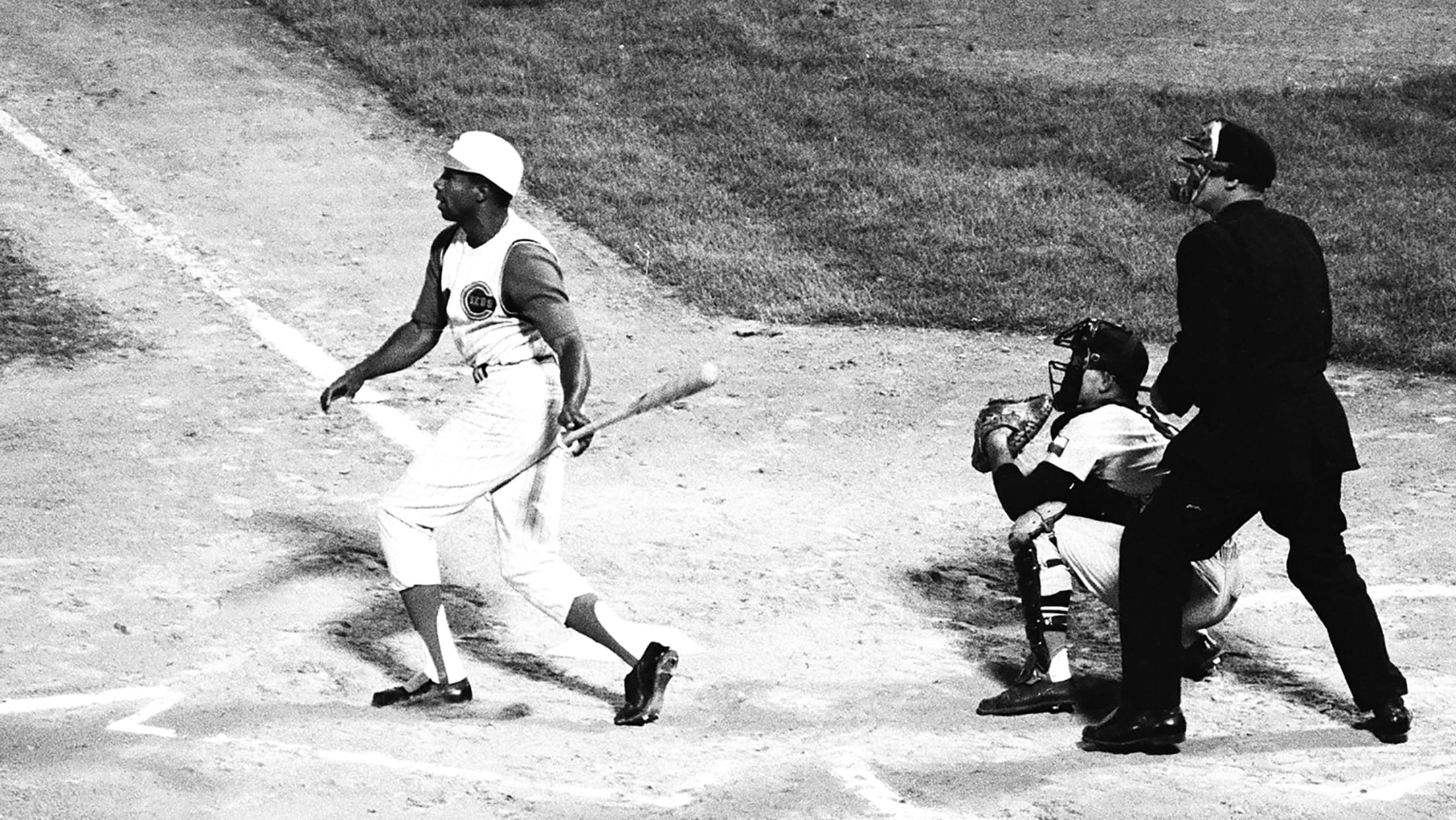
Frank Robinson leads the 1956 Reds and ties the then-record for home runs by a rookie with 38.
.
The Reds tie the then-major league record for home runs by a team in a season with 221. Pinch-hitter Smoky Burgess hit the record tying homer in the eighth inning of the season’s penultimate game. The major league record was broken by the Yankees in 1961 but the ’56 club’s mark was not surpassed by a Reds team until the 2005 Reds hit 222 homers.
.
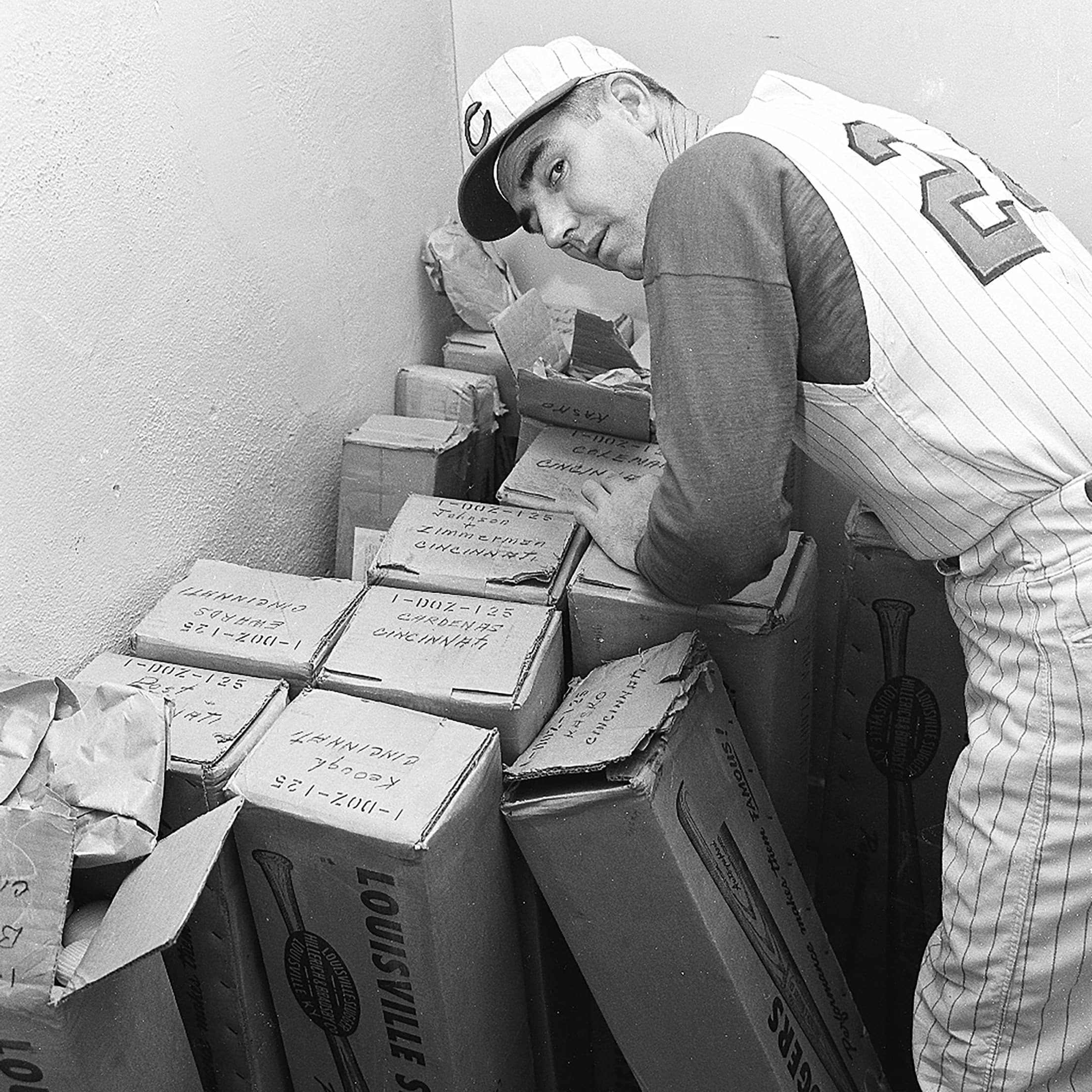
Jerry Lunch sets a franchise record with five pinch-hit home runs in a season
.
Frank Robinson and Wally Post homer in the Reds’ loss to the Yankees in the decisive fifth game of the 1961 World Series. It is the first multi-homer postseason game in Reds history.
.
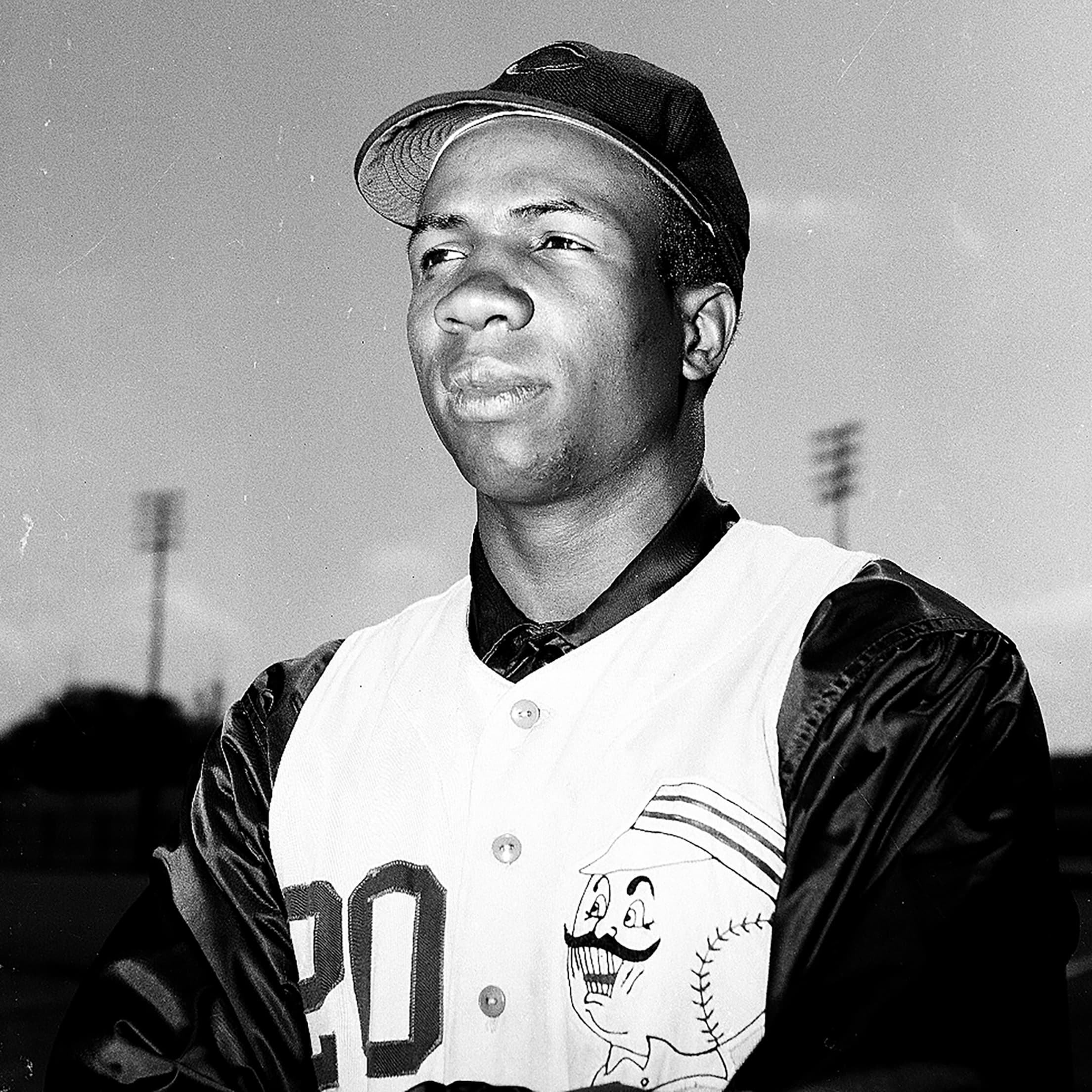
Frank Robinson becomes the first player to hit 300 career home runs as a Red.
.
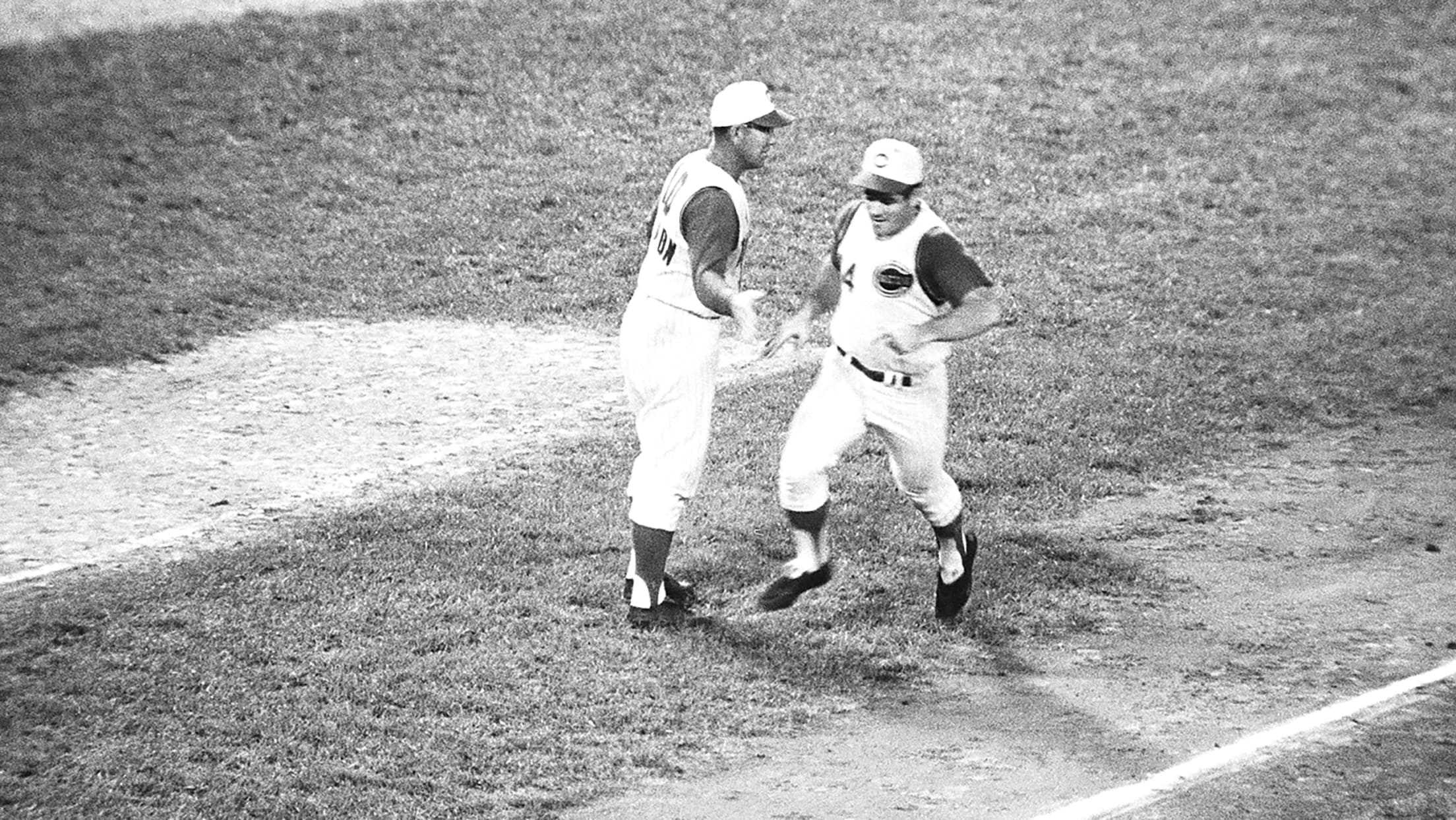
Pete Rose becomes the first Reds switch-hitter to homer from both sides of the plate in the same game.
The Reds hit a league leading 171 home runs. The club repeats as the league’s home run leader in 1970, the only time the Reds have led the league in homers in consecutive seasons.
First baseman Lee May hits the last home run at Redland/Crosley Field.
Second baseman Tommy Helms hits the first home run by a Red at Riverfront Stadium.
Tony Pérez’s grand slam is the first home run to reach the upper deck red seats at Riverfront Stadium.
Tony Pérez’s grand slam is the first home run to reach the upper deck red seats at Riverfront Stadium.
Johnny Bench sets a new franchise record for home runs by a right-handed hitter when he belts a league leading 45. Bench is the first Red to lead the league in home runs since 1954.
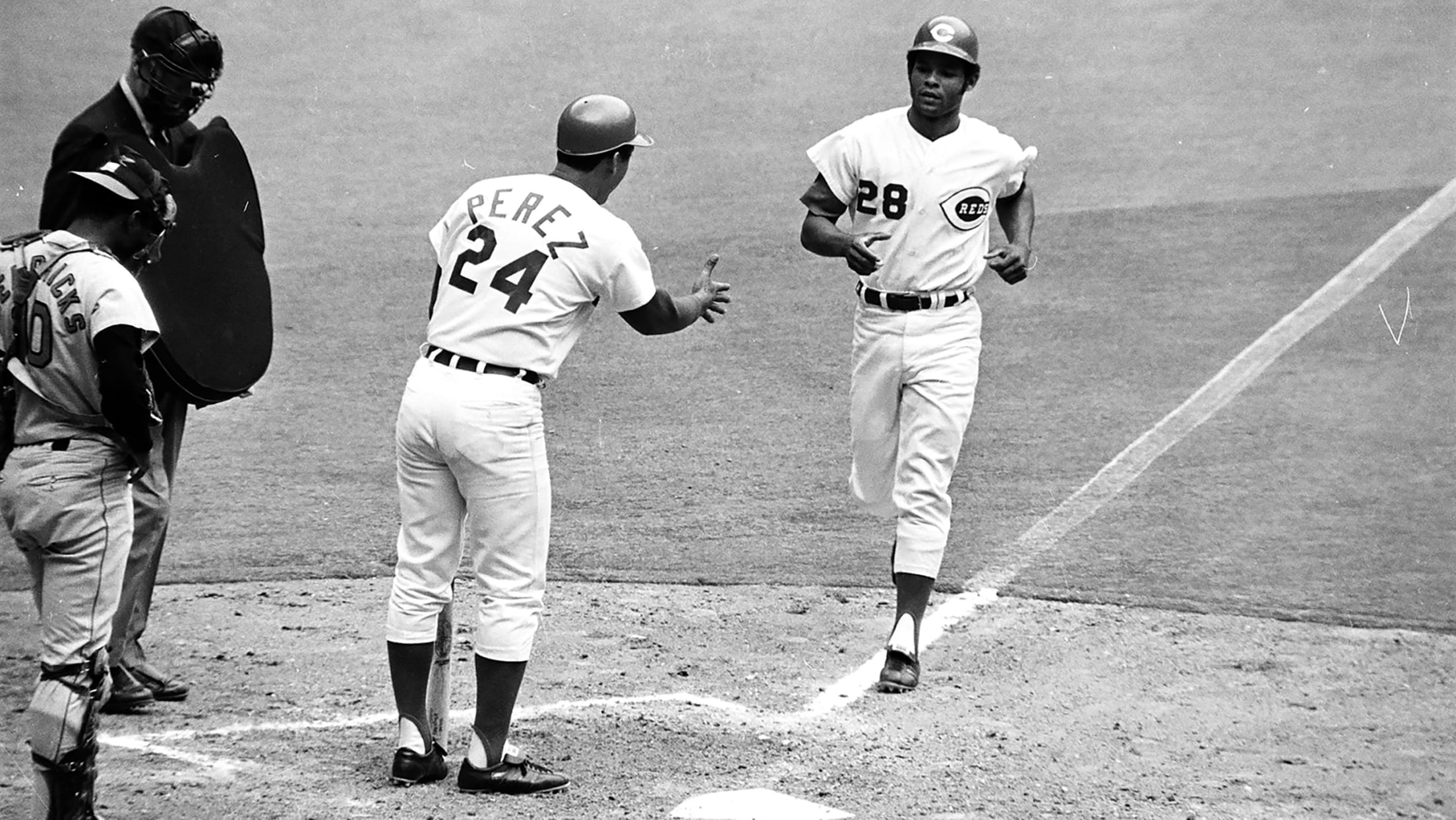
Outfielder Bobby Tolan hits the first playoff home run in Reds history in Game 2 of the National League Championship Series against the Pirates.
Johnny Bench ties the fifth and decisive game of the 1972 NLCS with a ninth inning home run.
Backup catcher Hal King’s walk-off home run against the Dodgers sparks the Reds to the division title.
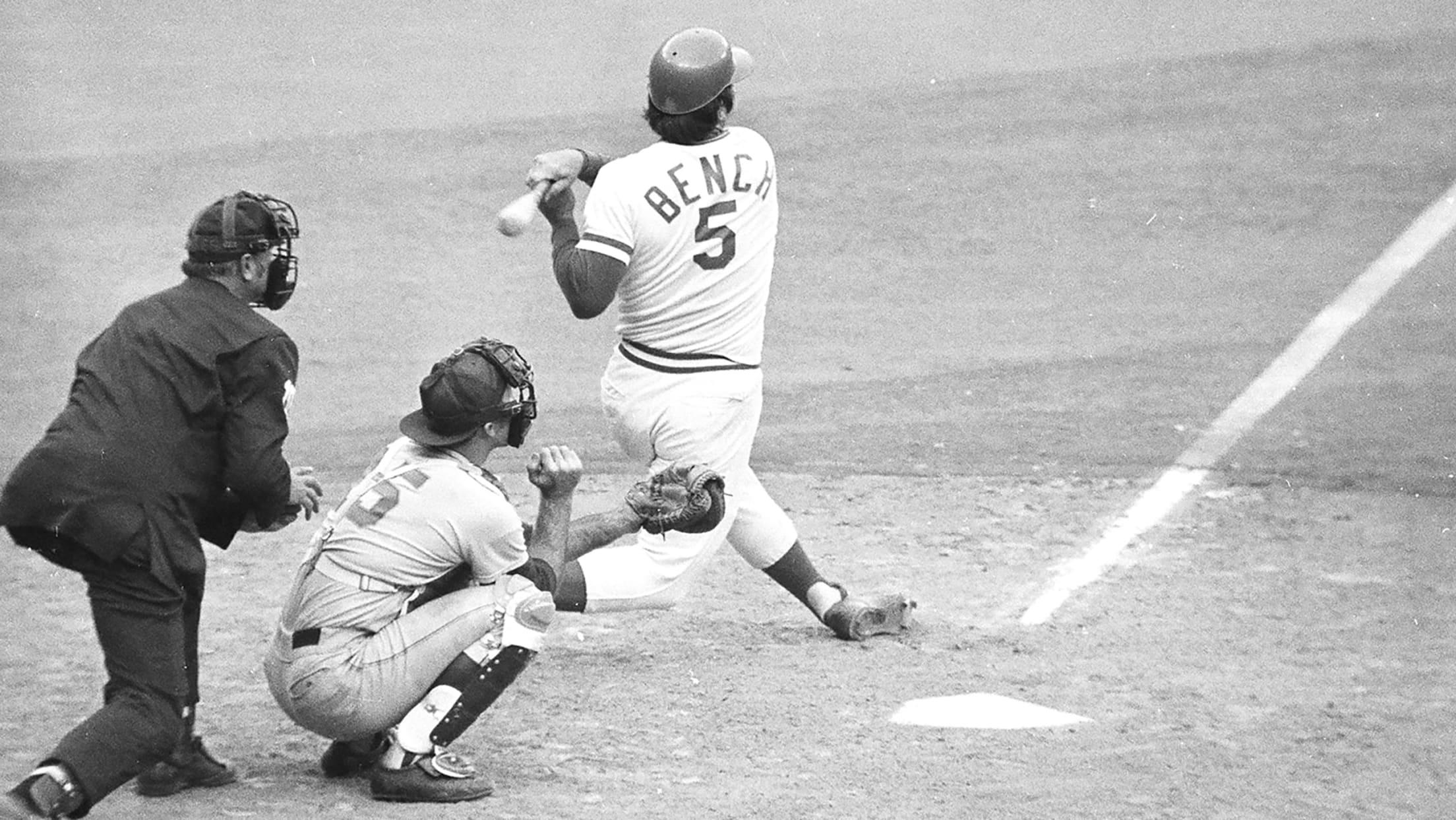
Johnny Bench hits the first walk-off home run in Reds postseason history in a 2-1 victory over the Mets in Game 1 of the NLCS.
A day after he sparked a bench-clearing brawl by getting into a fight with Bud Harrelson, Pete Rose hits the game winning home run in the ninth inning of Game 4 of the NLCS.
On Opening Day, Reds pitcher Jack Billingham surrenders career home run #714 to Hank Aaron of the Braves. The homer tied Babe Ruth’s then major league record for career home runs.
Tony Pérez hits two home runs in Game 5 of the World Series to become the first Red with a multi-homer postseason game.
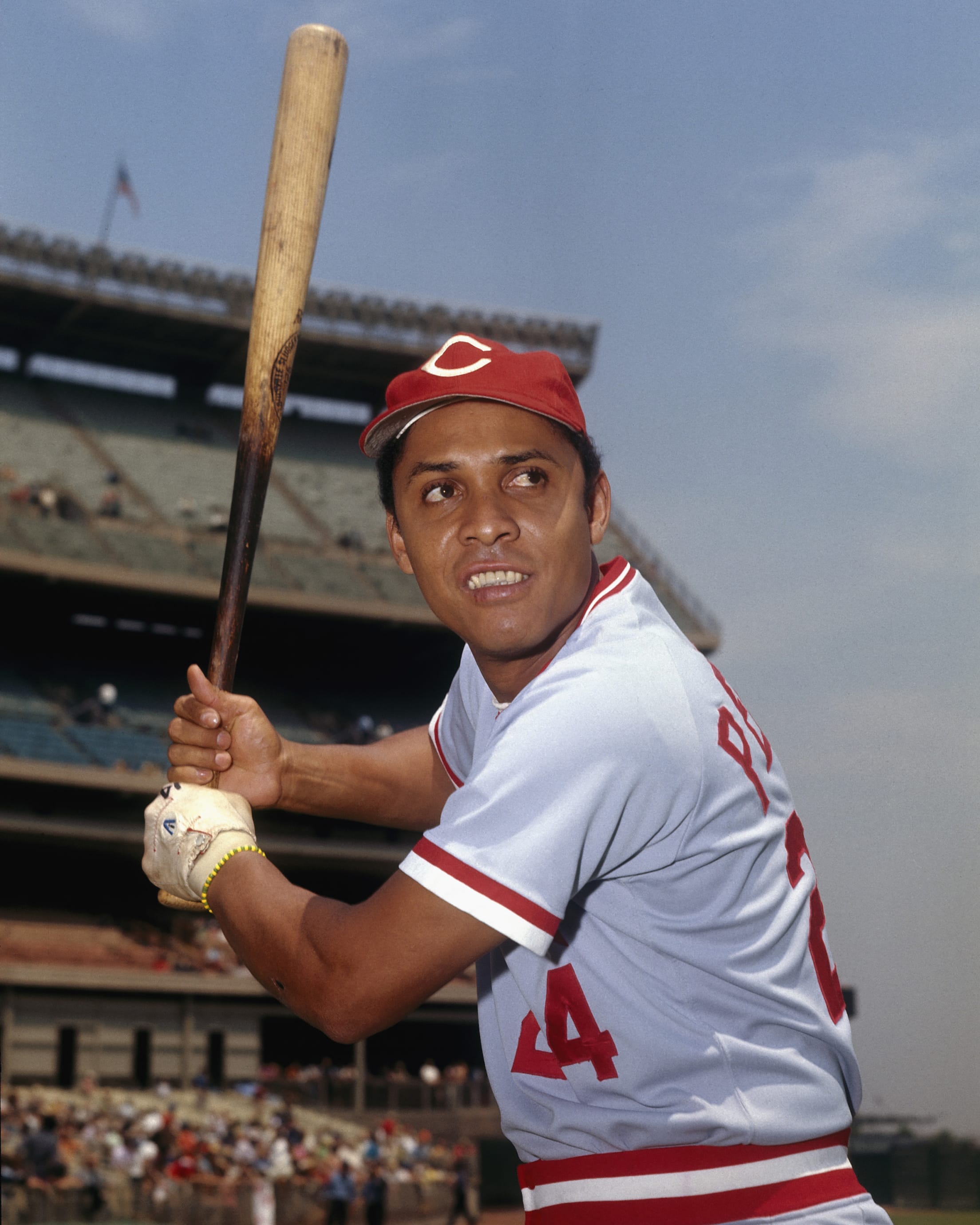
Tony Pérez’s two-run home run in the sixth inning sparks the Reds to a 4-3 comeback victory in Game 7 of the World Series.
The Reds lead the National League with 141 home runs.
George Foster and Johnny Bench hit back-to-back solo home runs to ignite a game winning rally in the pennant-clinching third game of the NLCS.
Johnny Bench’s two home runs are decisive in the Reds’ Series-clinching victory over the Yankees.
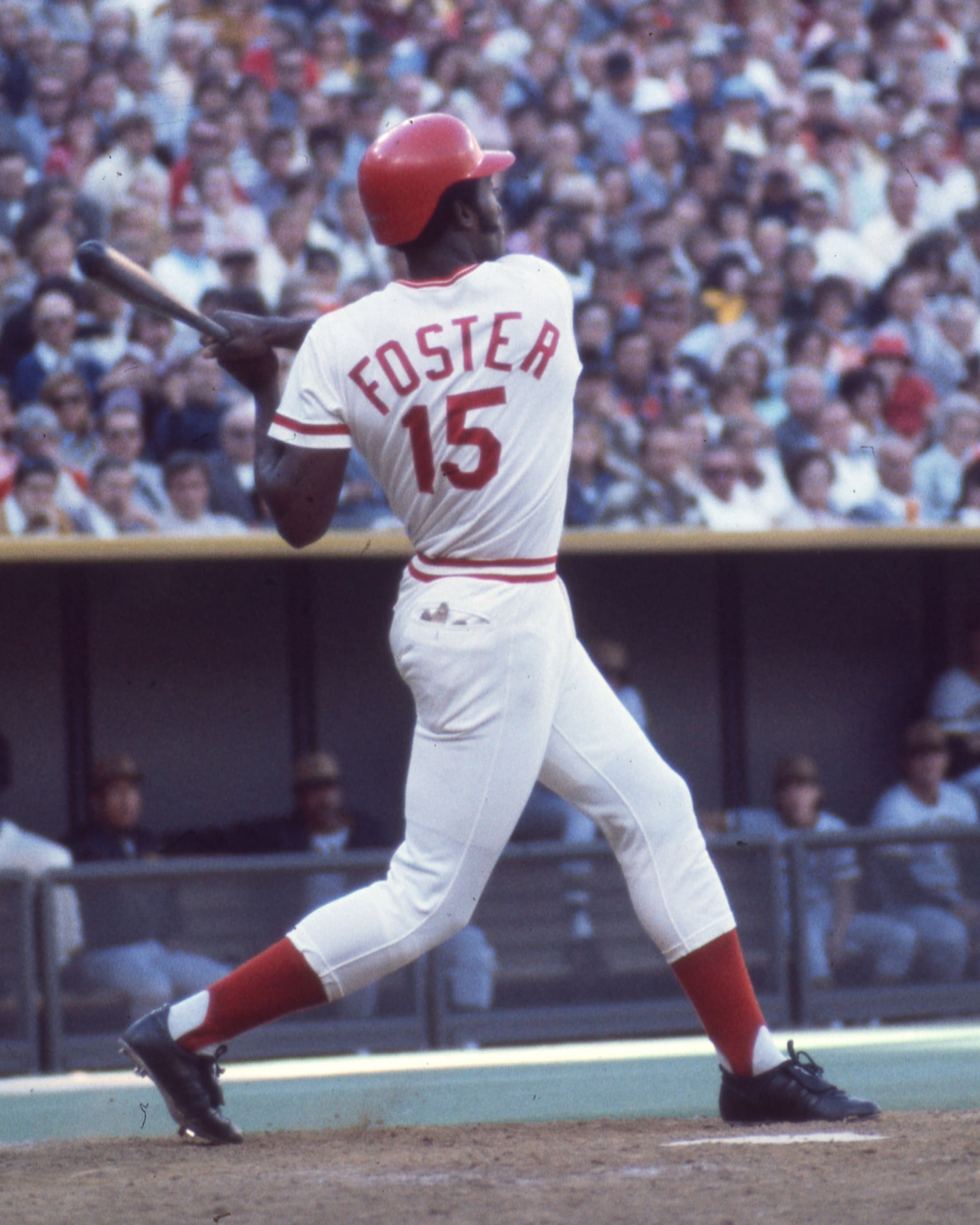
George Foster sets a new single season franchise record with 52 home runs.
George Foster leads the NL in home runs for the second straight season. He is the only Reds player to lead the league in homers in consecutive seasons
Johnny Bench hits career home run #325 to break Frank Robinson’s franchise record.
Johnny Bench hits career home run #325 to break Frank Robinson’s franchise record.
Johnny Bench breaks Yogi Berra’s record for career home runs by a catcher.
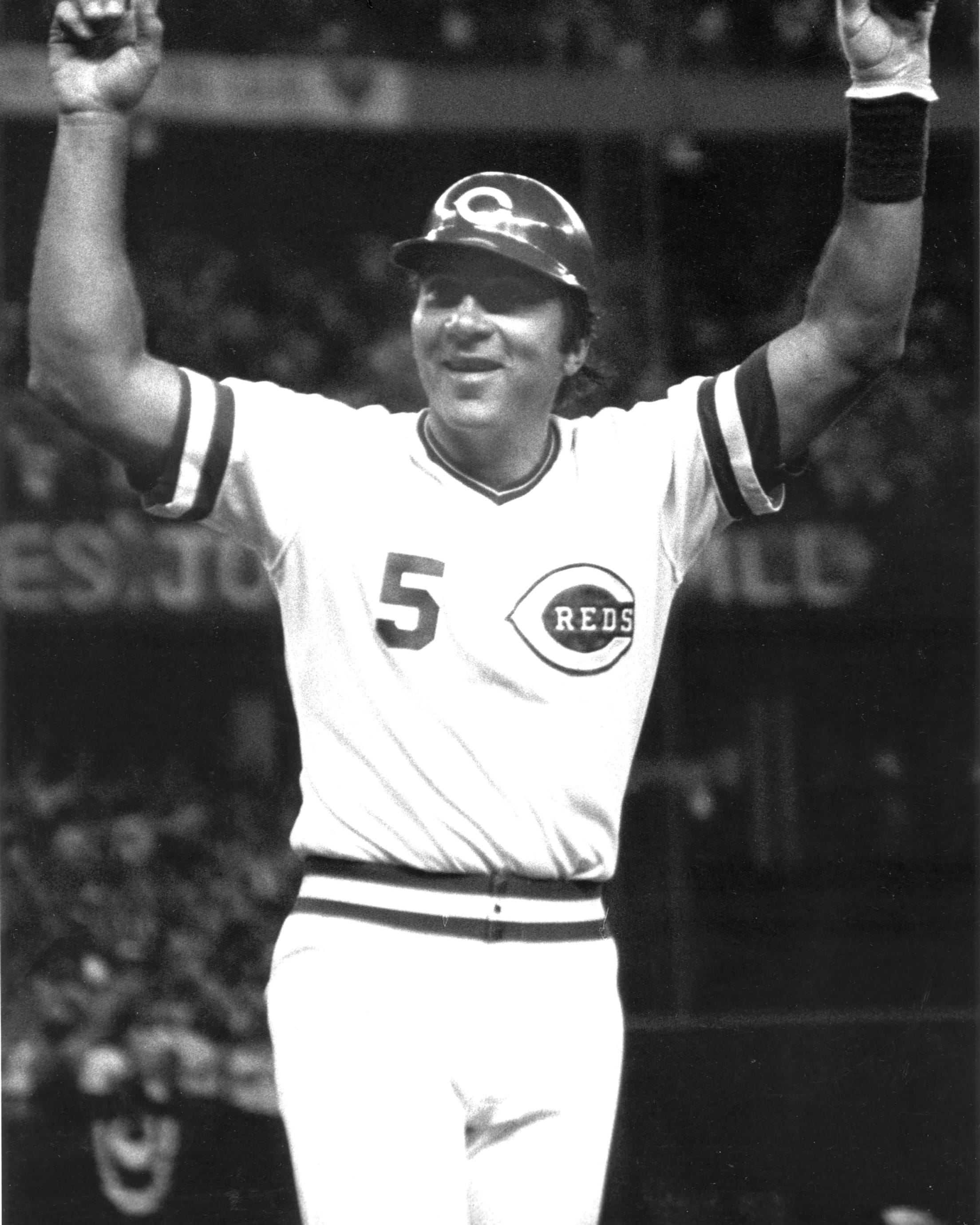
Johnny Bench hits the last of his Reds career record 389 home runs on Johnny Bench Night at Riverfront Stadium.
Fireworks follow Reds home runs at the ballpark for the first time, a tradition that remains in place today.
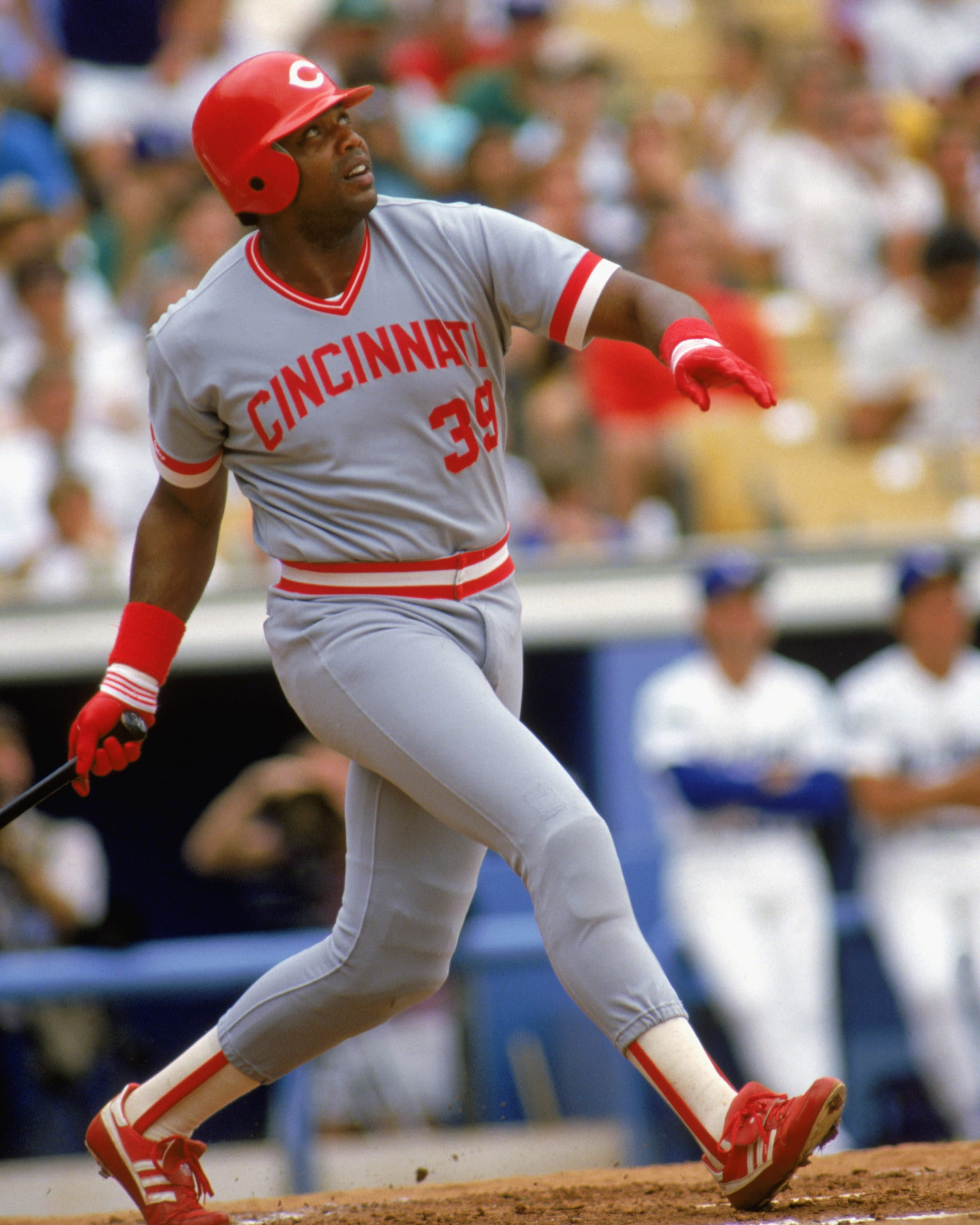
Outfielder Dave Parker wins the inaugural All-Star Game Home Run Derby.
Tony Pérez’s 379th and final career home run ties the then-record for most home runs hit by a Latino player.
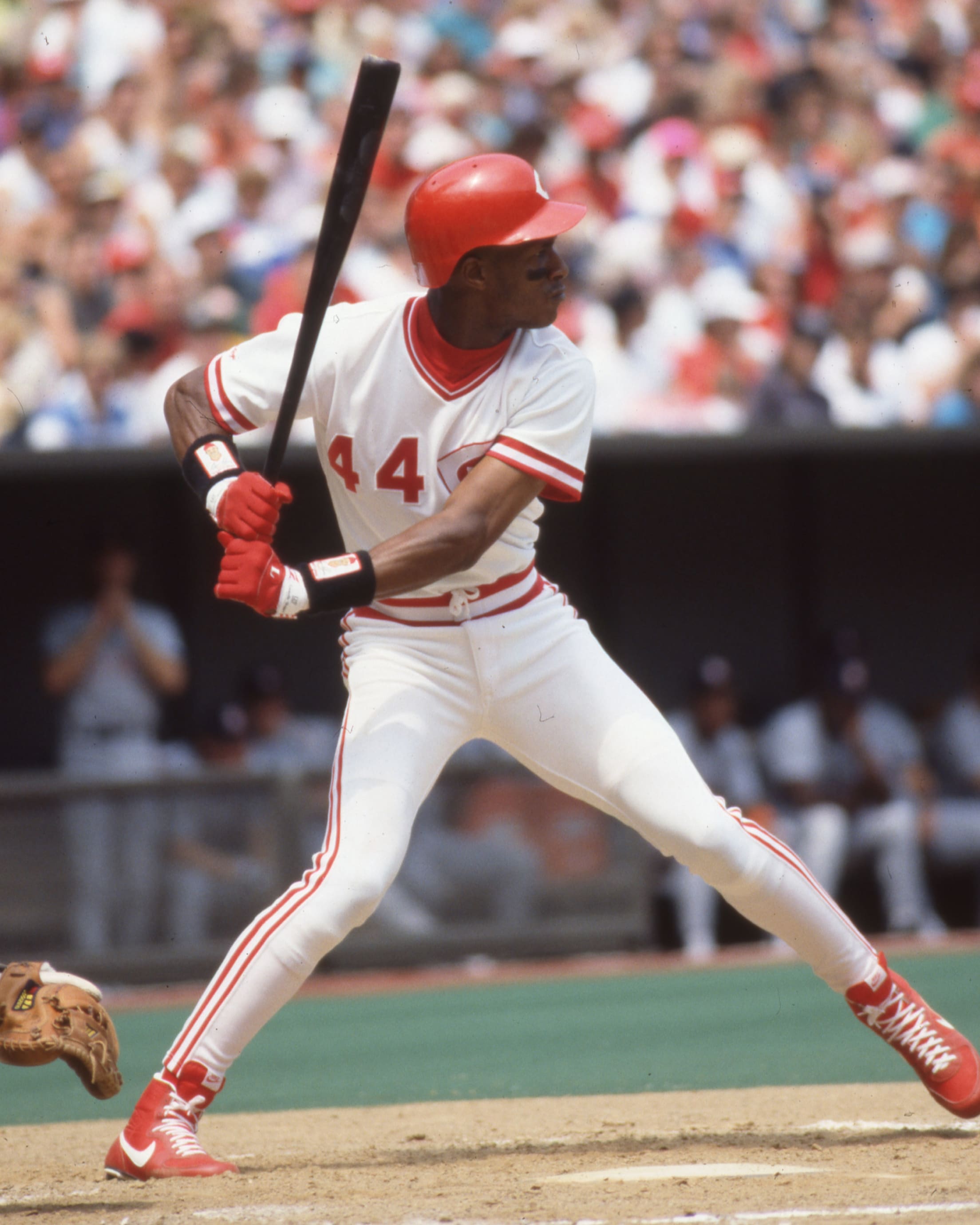
With 37 home runs and 50 stolen bases, outfielder Eric Davis becomes the first Red in the 30-home run/30 stolen base club.
Eric Davis hits a two-run home run in the bottom of the first inning of Game 1 of the 1990 World Series to spark the Reds to a World Series sweep of Oakland.
Chris Sabo becomes the third Red to hit two home runs in a World Series game.
The defending World Champion Reds’ lead the NL with 164 home runs.
Pinch-hitter Mark Lewis hits the first postseason grand slam by a Red in Game 3 of the National League Division Series.
With 33 home runs and 36 stolen bases, Barry Larkin is the second Red ever and the first shortstop in major league history to join the 30-home run/30 stolen base club.
The Reds set a National League record by hitting nine home runs in a game.
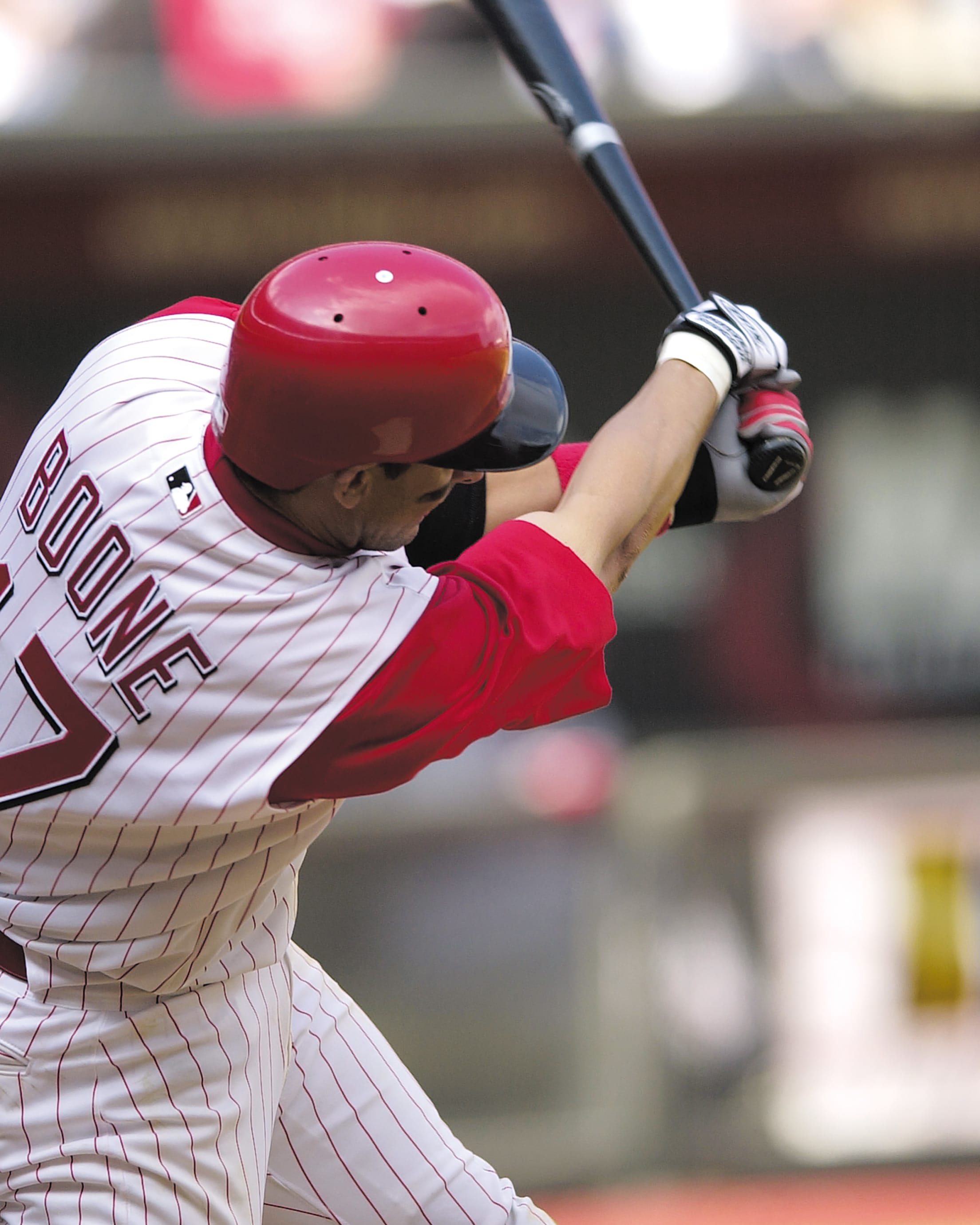
Third baseman Aaron Boone hits the last home run at Riverfront Stadium/Cinergy Field.
Outfielder Austin Kearns is the first Red to hit a home run at Great American Ball Park.
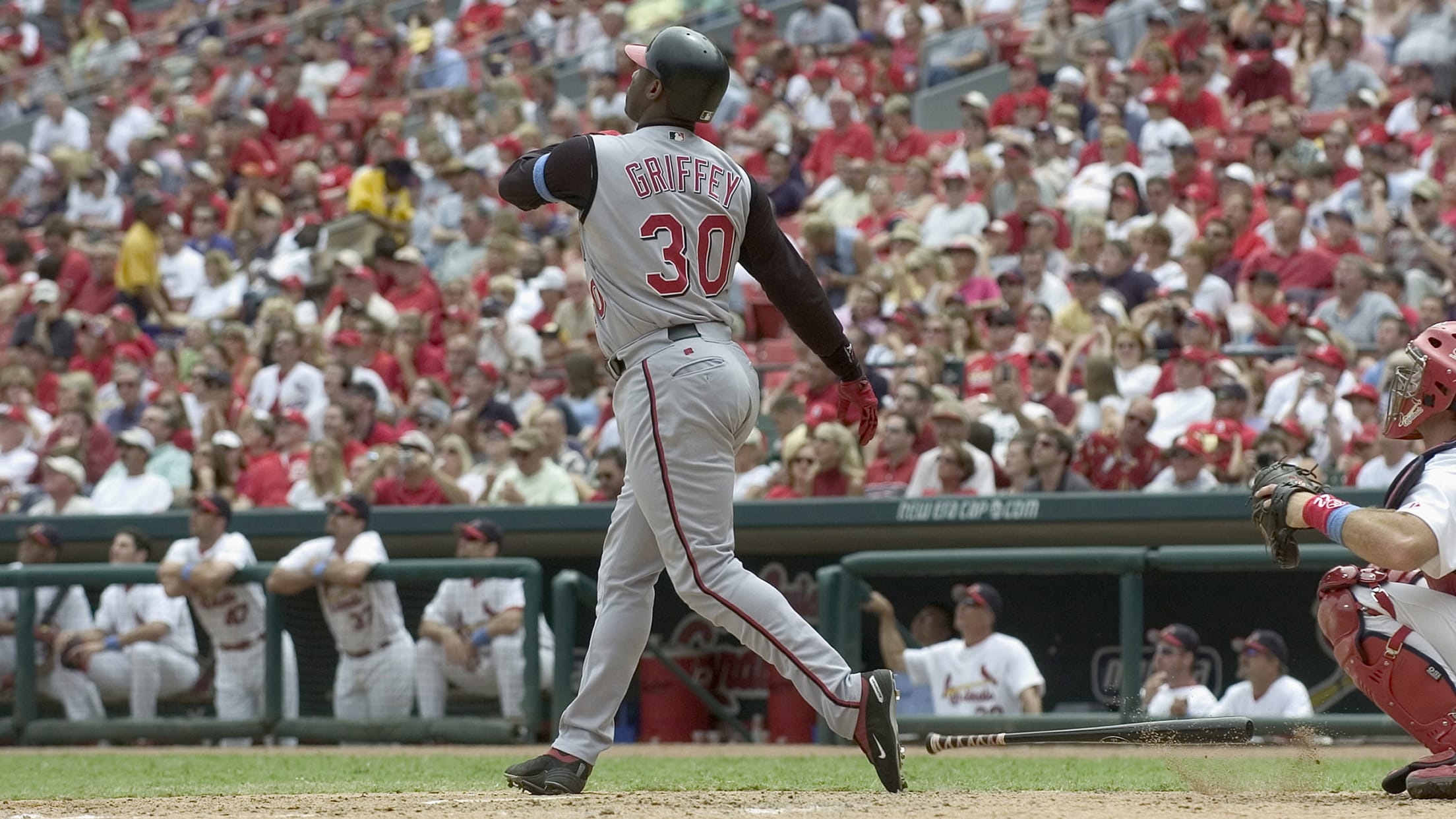
Outfielder Ken Griffey, Jr. hits career home run #500.
Outfielder Adam Dunn hits the longest home run in Great American Ball Park history. The shot sailed outside of the ballpark and is estimated to have travelled 535 feet.
Third baseman Joe Randa hits the first walk-off Opening Day home run by a Red.
Shortstop Felipe López sets a new single season franchise record with 23 home runs by a switch-hitter.
The Reds set a new franchise record for team home runs with 222.
Second baseman Brandon Phillips hits 30 home runs and steals 32 bases to becomes the third Red in baseball’s 30-home run/30 stolen base club.
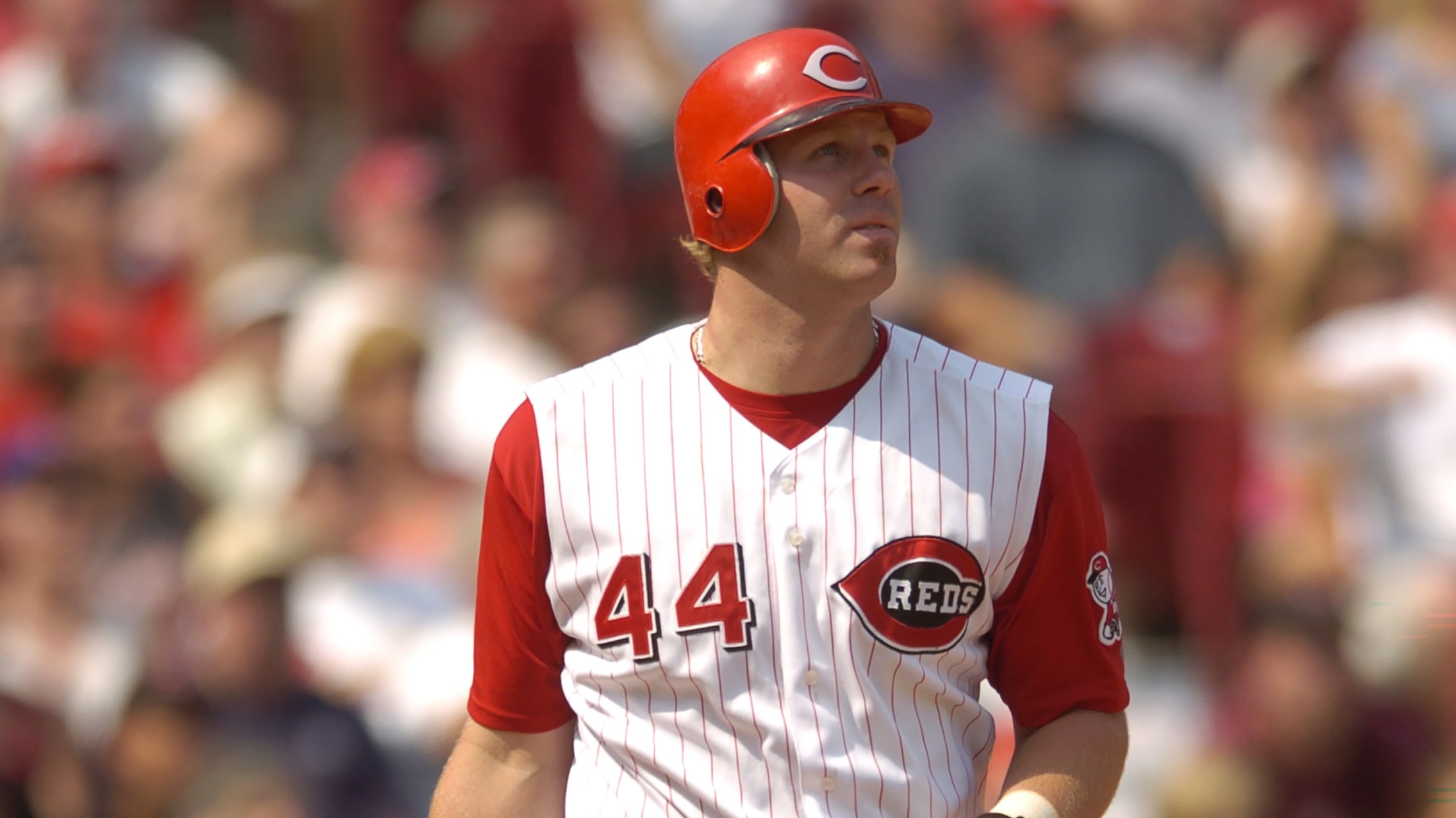
Adam Dunn sets a new franchise record with his fourth season of 40 or more home runs.
First baseman Joey Votto is the first Reds rookie to hit three home runs in a game.
Ken Griffey, Jr. hits career home run #600.
Outfielder Jay Bruce hits a walk-off home run to clinch the NL Central Division title for the Reds.
The Reds lead the NL with 188 home runs.
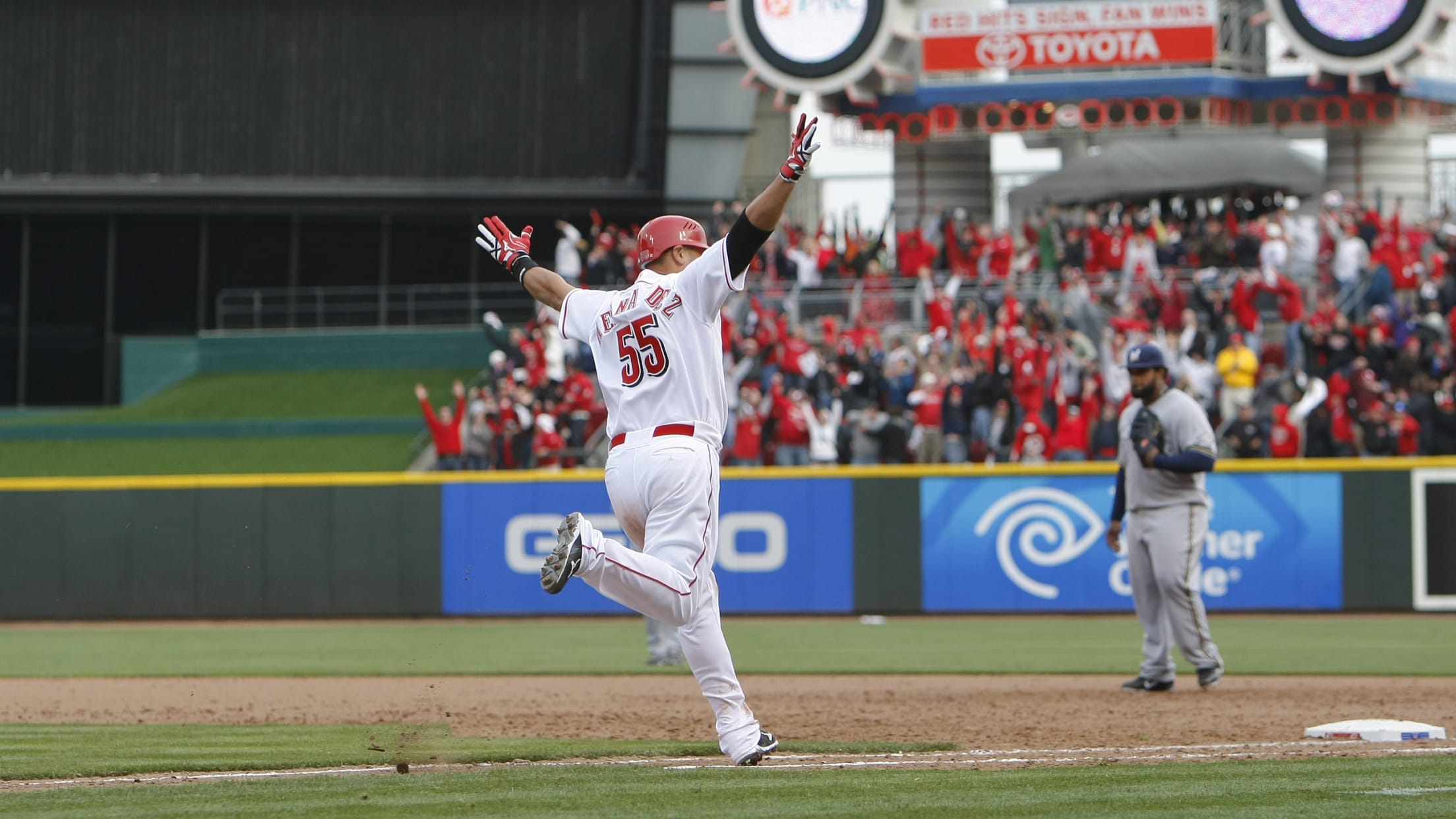
Catcher Ramón Hernández hits the second Opening Day walk-off home run in Reds history.
Third baseman Juan Francisco hits the second 500-plus foot home run in Great American Ball Park, a 502-ft. shot that landed on the sidewalk outside the ballpark.
Reds third baseman Todd Frazier wins the MLB All-Star Game Home Run Derby in front of a hometown crowd.
Second baseman Scooter Gennett becomes the first Red to hit four home runs in a game.
Outfielder Aristides Aquino sets an NL record and ties the overall franchise record with 14 home runs in a month.
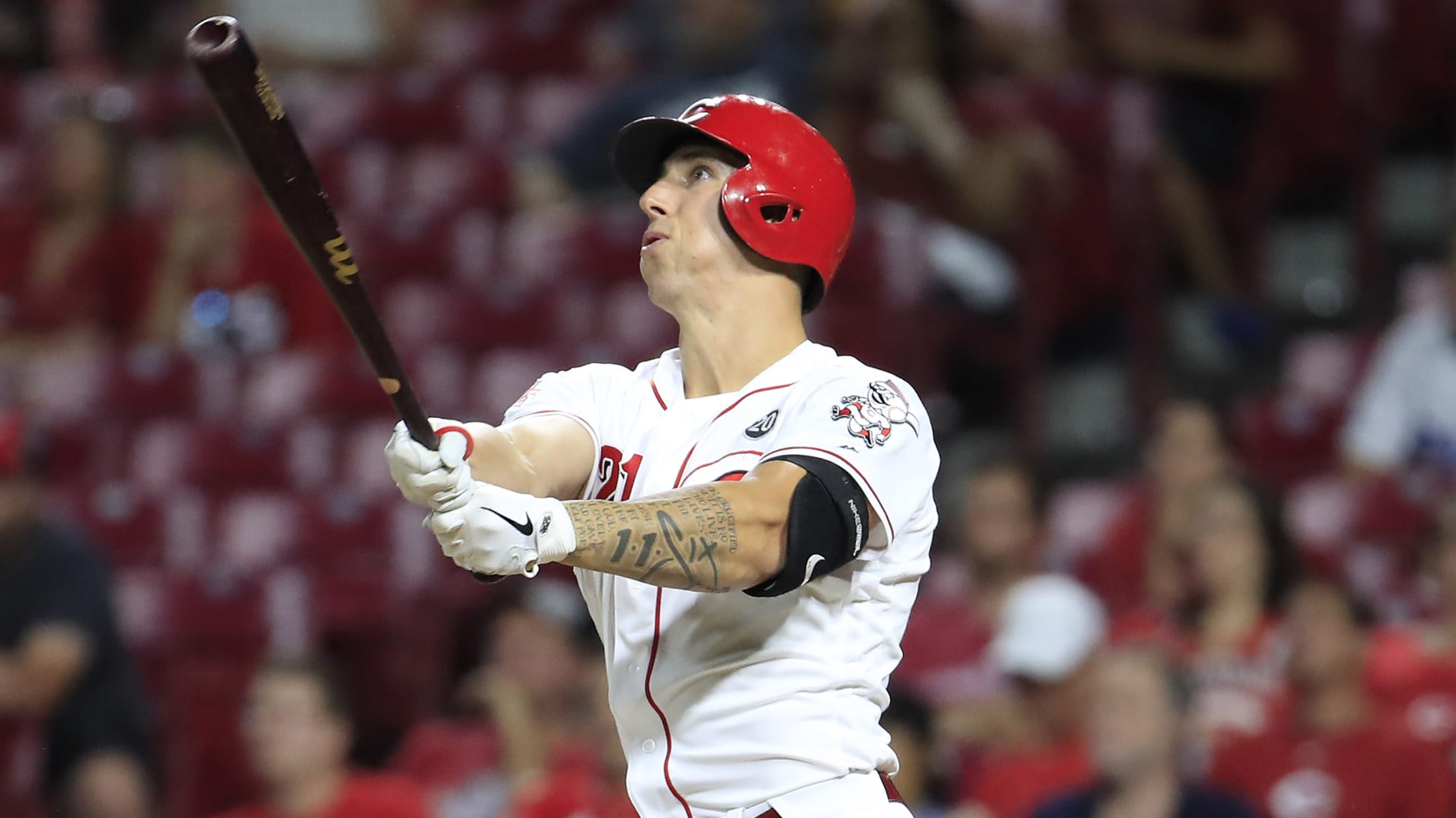
Michael Lorenzen becomes the first player since Babe Ruth to earn a victory, play in the outfield and hit a home run in the same game.
The Reds set a new franchise record for team home runs with 227.
First baseman Joey Votto becomes the third Red in history to hit 300 home runs while playing for the Reds.
Outfielder Jesse Winker sets a club record by hitting three home runs in a game for the second time in a season.
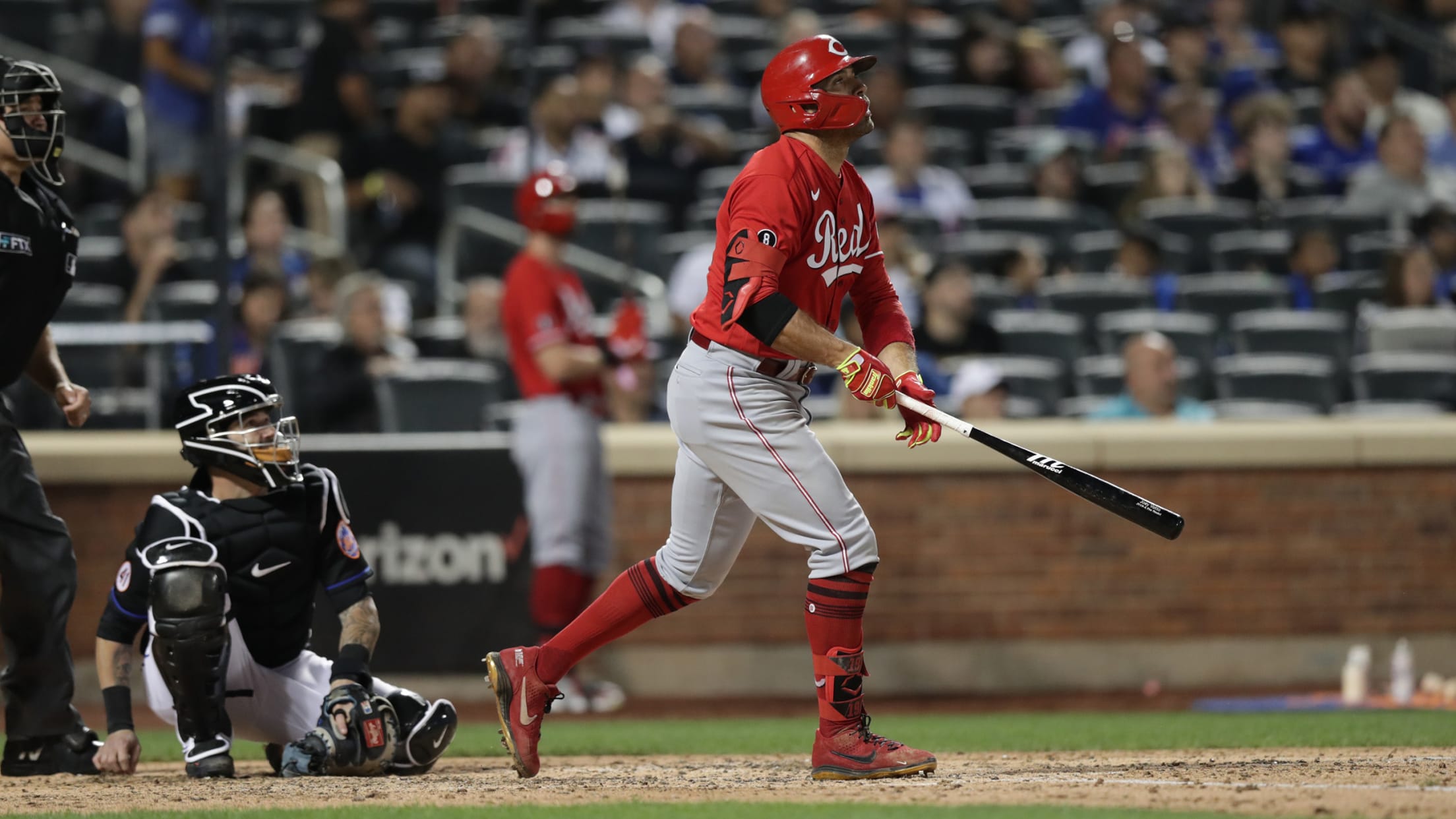
Joey Votto sets a franchise record by homering in seven straight games.
With career home run #325, Joey Votto passes Frank Robinson and moves into second place on the Reds career home run list.
The Reds set a new franchise record for consecutive games hitting at least one home run. The Reds homered 45 times over the 22-game span.
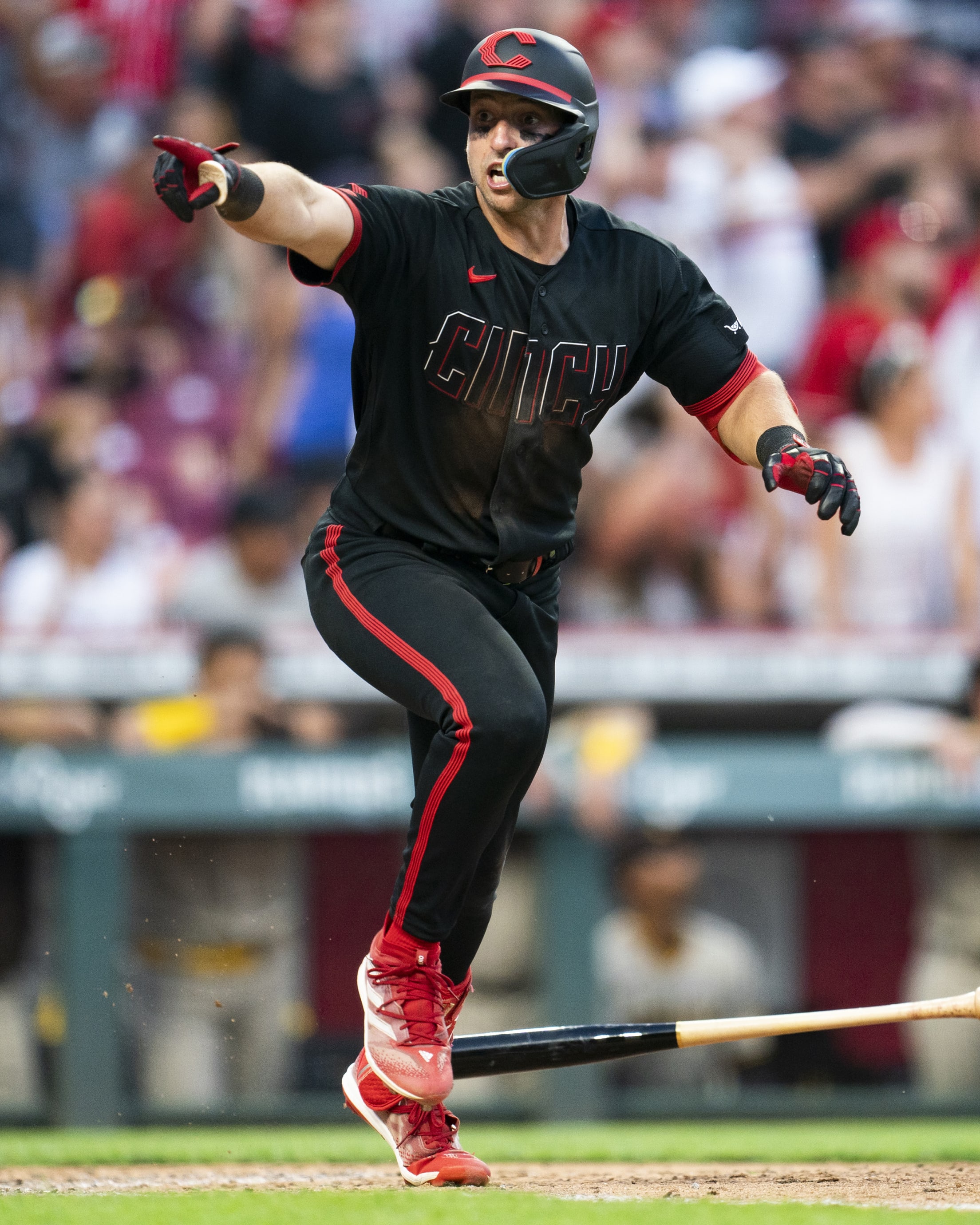
The Reds led the major leagues and set a franchise record with 68 home runs hit by rookie players. The Reds also set a new franchise record with 11 players with at least ten home runs in a single season.